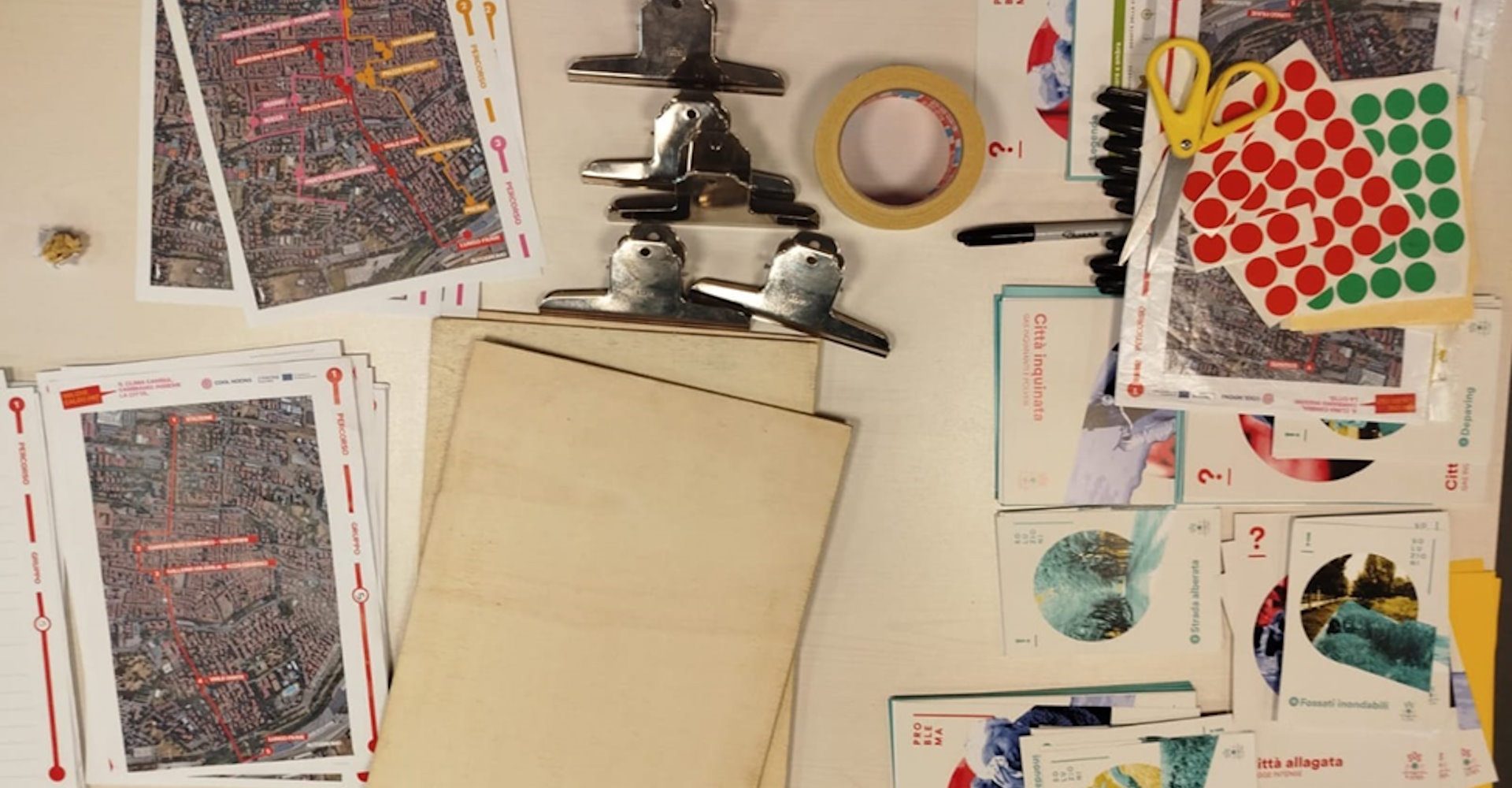Workshop Cool Noons project

On Thursday, September 26, Friday, October 4, and Saturday, October 12, workshops were held as part of the European Cool Noons project, under the Interreg Euro-Med Program.
The Cool Noons project aims to address the issue of urban tourism in Mediterranean cities, which are significantly impacted by the negative effects of climate change, particularly heat waves. The Metropolitan City of Bologna has designated the city of Imola as its area of focus, where it will develop climate adaptation solutions to mitigate the impact of extreme heat events.
In collaboration with the Municipality of Imola and Villaggio Globale, a social cooperative from Ravenna focused on social innovation services, participation and educational projects, the Metropolitan City of Bologna organized a series of exploratory walks and workshops to reimagine public spaces. The goal is to engage citizens, especially young people, in the search for and design of solutions to help the city of Imola address climate change challenges.
During the three workshops, a step-by-step walk was conducted to map the livability of key public spaces in Imola, from the train station to the racetrack, aiming to identify areas where excessive heat requires targeted interventions.
The workshops were facilitated by Elena Farnè, an architect specializing in Urban Regeneration and Public Space and Landscape Design; Giovanna Antoniacci, an urban planner with expertise in participatory design; City Councilor Elisa Spada; Catia Nanni from CEAS Imolese; and representatives from the Metropolitan City of Bologna.
In addition to local residents and community associations, the workshops included students from the Scarabelli Ghini Technical Institute, specializing in Environmental Management, and from the Paolini Cassiano Institute, specializing in Construction, Environment, and Territory, as well as Accessible and Sustainable Tourism. The students’ participation in the Cool Noons project allowed them to apply their environmental skills to the development of solutions relevant to the context under examination.
The main focus was the creation of a cooler path stretching from Imola’s Central Station to the Enzo and Dino Ferrari Autodrome. In this way, both residents and tourists can benefit from a more welcoming city that is also better prepared to address climate change challenges, with strategies aimed at enhancing the livability of spaces for all users, including those who are more vulnerable, such as the elderly and people with disabilities.